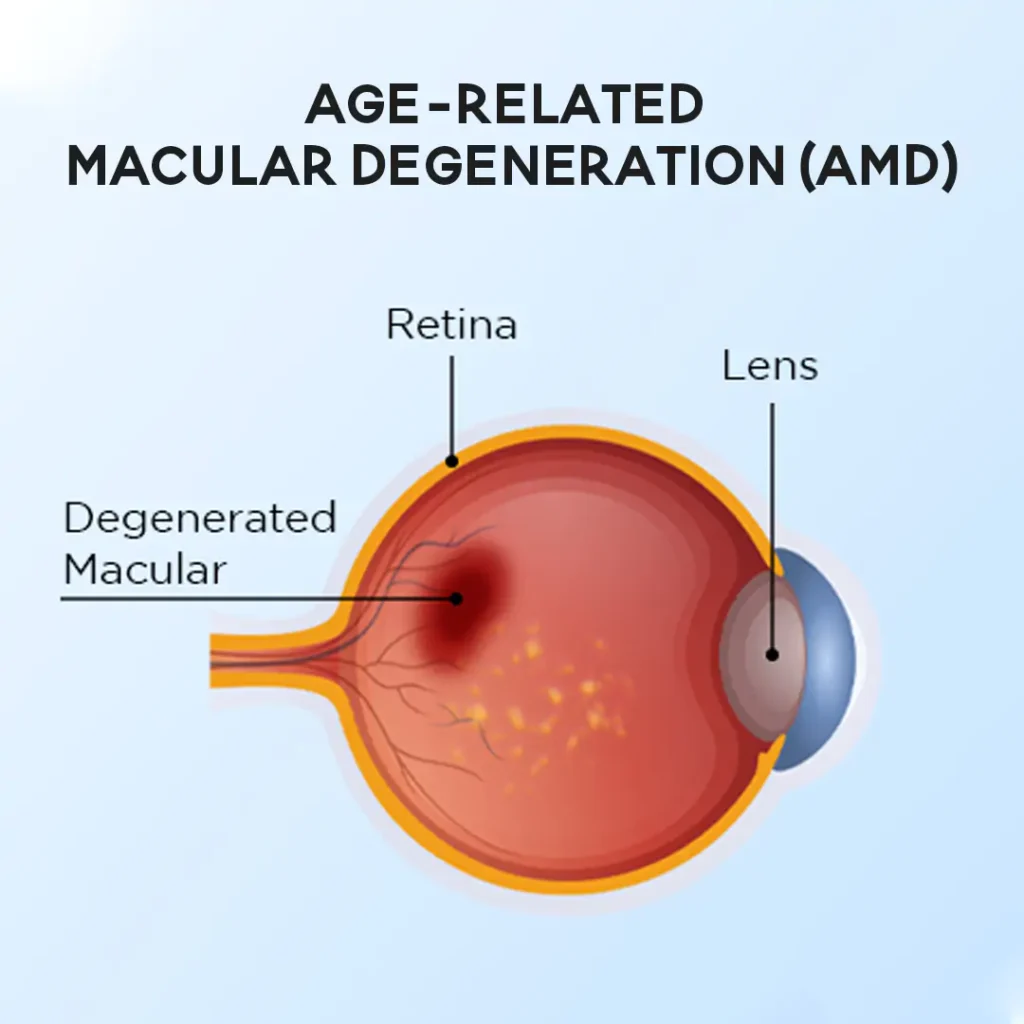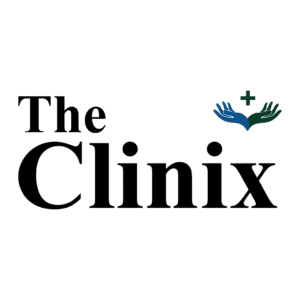
What is Age-Related Macular Degeneration (AMD)?
Age-Related Macular Degeneration (AMD) is a progressive eye condition that damages the macula—the central part of the retina responsible for sharp, detailed vision. As people age, the likelihood of developing Age Related Macular Degeneration increases, and it can significantly affect daily activities like reading, driving, and recognizing faces. While AMD does not cause complete blindness, it severely impacts central vision, which is essential for tasks requiring fine detail.
If you are experiencing symptoms or have concerns, specialized Age Related Macular Degeneration Services in Patiala can help with early detection, diagnosis, and effective management.
Types of Age-Related Macular Degeneration
There are two primary types of Age Related Macular Degeneration, each with distinct characteristics and progression patterns:
1. Dry AMD (Non-Neovascular AMD)
Dry AMD is the most common form, affecting around 85-90% of individuals diagnosed with Age-Related Macular Degeneration. It involves the gradual thinning of the macula and the accumulation of drusen (small yellow deposits). This type progresses slowly and may eventually transition into Wet AMD.
2. Wet AMD (Neovascular AMD)
Wet AMD is less common but more severe. It occurs when abnormal blood vessels grow underneath the retina, leaking fluids and blood, leading to rapid vision loss. Immediate medical attention is crucial for Wet AMD.
Symptoms of Age-Related Macular Degeneration
In early stages, Age Related Macular Degeneration in Patiala may not show noticeable symptoms. However, as the condition worsens, you may experience:
Blurred or reduced central vision
Difficulty seeing clearly in low-light conditions
Straight lines appearing distorted or wavy
A dark or blank spot in the center of your vision
If any of these symptoms appear, seek an eye specialist promptly. Accessing professional Age Related Macular Degeneration Services in Patiala ensures timely diagnosis and care.
Risk Factors for Age-Related Macular Degeneration
Several factors increase the risk of developing Age-Related Macular Degeneration, including:
Age (higher risk after 50)
Family history of AMD
Smoking, which damages retinal blood vessels
Poor diet lacking essential nutrients
Diagnosis of Age-Related Macular Degeneration
Early detection is key to managing Age-Related Macular Degeneration effectively. At Dr. Harsh Inder Retina Center, we use advanced diagnostic tools, including:
Optical Coherence Tomography (OCT)
Fluorescein Angiography
Comprehensive dilated eye exams
Residents seeking Age Related Macular Degeneration Services in Patiala receive detailed evaluations and customized treatment plans at our center.
Treatment and Management of Age-Related Macular Degeneration
While there’s no cure for Age-Related Macular Degeneration, treatments can slow progression:
For Dry AMD:
Dietary changes (leafy greens, antioxidants)
AREDS2 supplements (Vitamins C, E, Zinc, Lutein)
For Wet AMD:
Anti-VEGF injections (to block abnormal blood vessel growth)
Laser therapy and Photodynamic Therapy (PDT)
At our clinic, we provide specialized Age Related Macular Degeneration services in Patiala, ensuring patients receive the best care.
Living with Age-Related Macular Degeneration
With proper management, individuals with Age-Related Macular Degeneration can maintain independence. Tips include:
Using low-vision aids (magnifiers, high-contrast tools)
Ensuring proper lighting at home
Regular eye check-ups
Conclusion
Age-Related Macular Degeneration is a serious age-related eye condition that requires timely action. With early diagnosis and personalized care, vision can be preserved and daily life can remain comfortable. If you are looking for reliable Age Related Macular Degeneration Services in Patiala, visit Dr. Harsh Inder Retina Center for expert evaluation and treatment.
Protect your eyesight today—schedule your comprehensive eye examination and take the first step towards better vision health.
